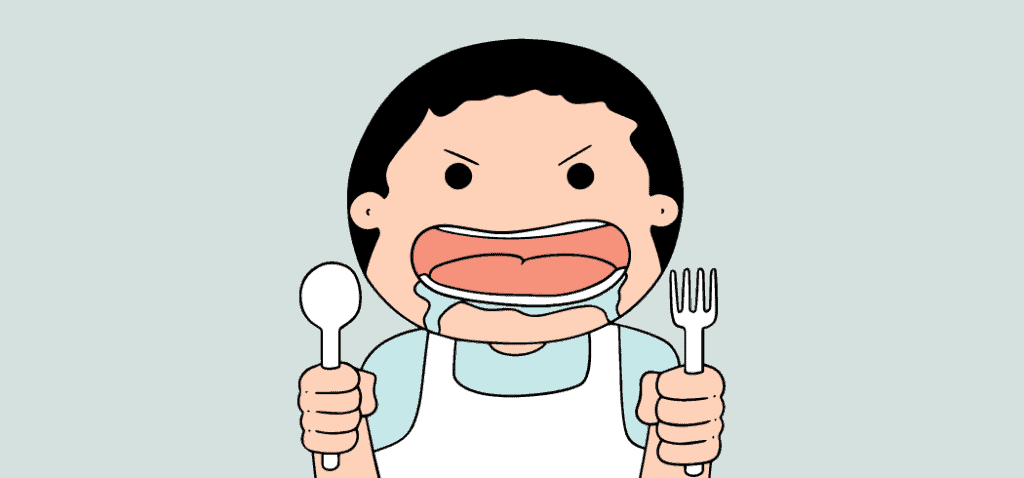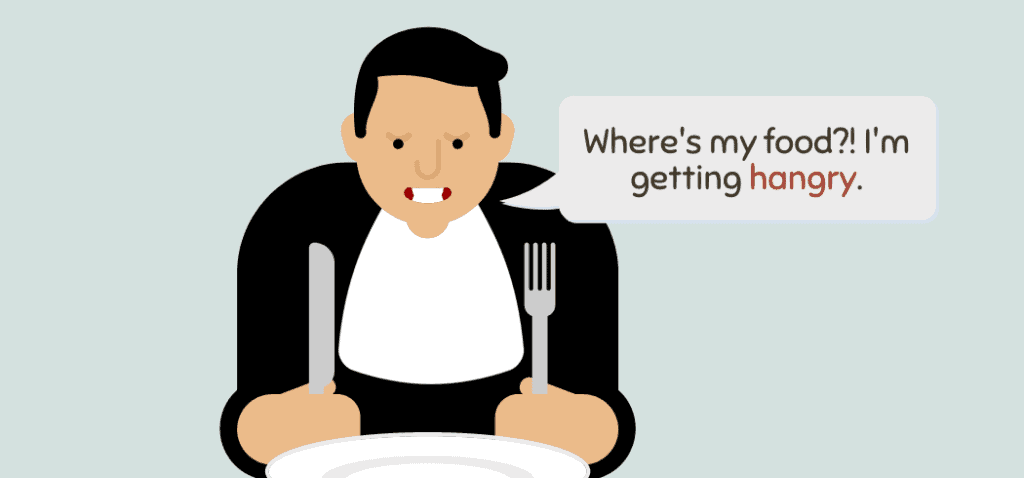Have you ever been so undeniably hungry that you started to get super irritable or even a little angry for no other reason? If so, you’ve probably experienced what we call “hangry.” But what does this silly term really mean, and where did it come from? Sit tight as I explore the meaning and origins of “hangry” and share some sentence examples with you.
What Does Hangry Mean?
“Hangry” is a portmanteau (made-up word or blended word) of the words “hungry” and “angry.” We use it somewhat jokingly to describe our feelings of becoming irritable or short-tempered when hungry, especially if we haven’t eaten in a while. You probably experience a range of symptoms like feeling shaky, being a little lightheaded, or “fuzzy-headed,” which can make you more likely to get annoyed or upset.
Personally, I’m hypoglycemic, so my blood sugar is naturally low no matter what I do. So, if I skip a meal or go too long without a snack, my blood sugar drops, and I become what my husband calls a hangry nightmare. I’ve even cried because I was so hungry before. Yes, I’m that person.
Is Hangry a Real Word?
So, “hangry” started out as a slang term, but it became so popular and widely recognized that it’s now known worldwide. You’ll find it in books, T.V., and movies. It’s even been added to some dictionaries, like Merriam-Webster and the Oxford English Dictionary in 2015, which aptly define it as “irritable or bad-tempered as a result of hunger.” Sounds about right.
Hangry Origin: When Did Hangry Become a Word?
I’m sold on the idea that it was a mess up. Someone somewhere and at some point was so hungry and angry that when asked what was wrong, they just said hangry by mistake. That’s my Candace Theory!
But one origin theory comes from when Snickers had their “You’re Not You When You’re Hungry” ad campaign in 2010, which jokingly had people acting out of character due to hunger.
There’s apparently an earlier use of it from 1922 by writer Rebecca Camu in her short story A Splinter of Glass. I couldn’t find a direct source of the text, but many reliable sites state the fact as true.
Regardless of its origin, “hangry” quickly caught on and became a popular term for describing the feeling of hunger-induced crankiness.
Hangry Synonyms
- Food-frazzled
- Grumpy from hunger
- Running on empty
- Starved to death
Each of these terms refers to the idea that being hungry can affect your mood and make you more likely to snap at others.
How Do You Spell Hangry?
It’s a mix between hungry and angry in a way that sounds correct, so you’d spell it as h-a-n-g-r-y. And it’s pronounced hang-gree.
Using Hangry in a Sentence
- Oh my gosh! I’m so sorry for being short-tempered earlier; I was feeling really hangry.
- Let’s be sure to grab something to eat before we get too hangry to enjoy the day.
- When my blood sugar drops, I get really hangry and can’t focus on anything else. I’m almost too hangry to even eat!
- My daughter gets hangry if she doesn’t eat breakfast first thing in the morning.
- I knew I was getting hangry when I started snapping at my kids for no reason. Now I’m hangry and sad.
Don’t Get Hangry!
Now that you know what “hangry” means and where it came from, you might be more aware of when you or others get a little irritable due to hunger. And if you hear someone using the term “angry,” you’ll know exactly what they mean!


